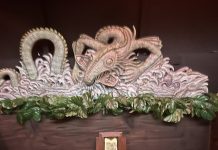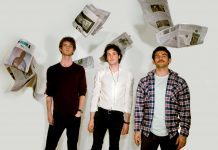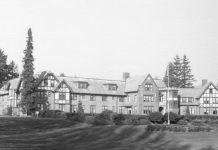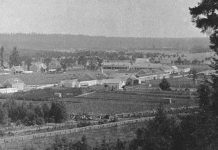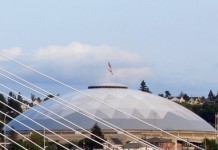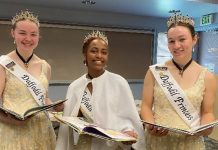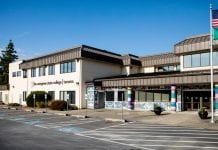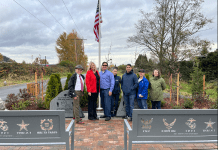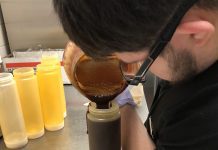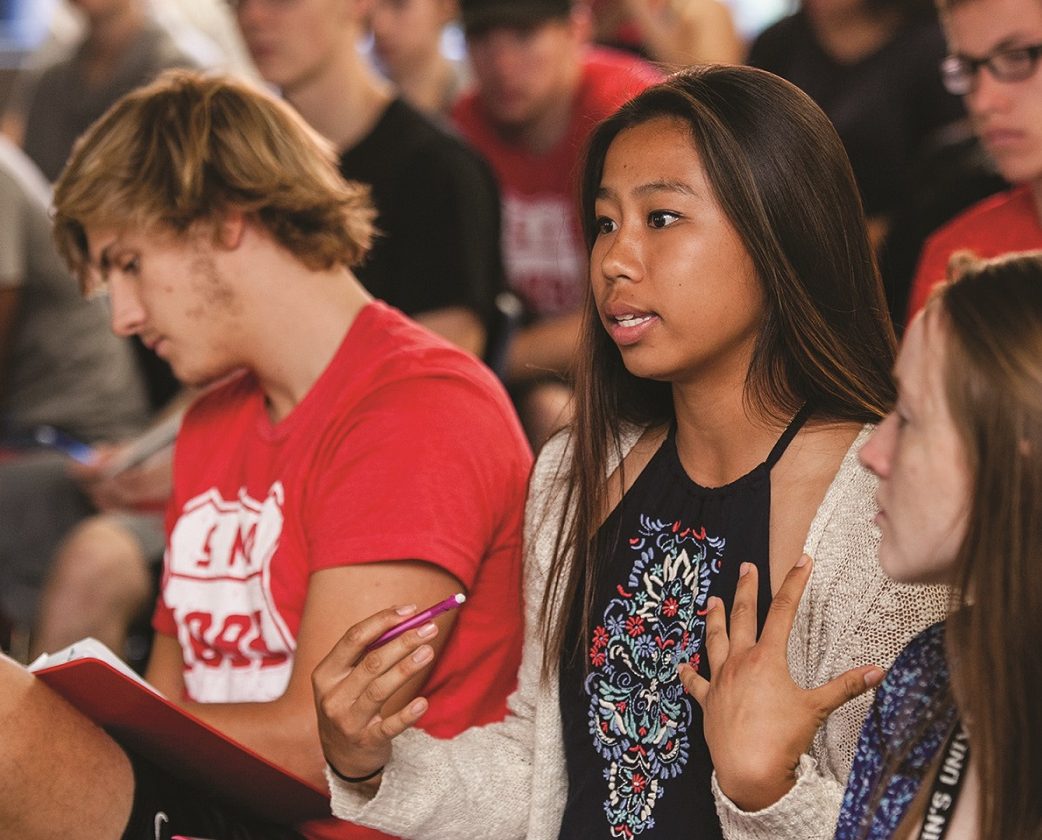On Wednesday, March 29, Saint Martin’s University will host Celia Deane-Drummond, Ph.D., a professor of theology from the University of Notre Dame and the director of Notre Dame’s Center for Theology, Science and Human Flourishing, for a lecture entitled “Science and Theology in Dialogue: What Does Evolutionary Anthropology Contribute to Theology?”
The lecture, which is free and open to the public, will be held at 7:00 p.m. at the Norman Worthington Conference Center, located at 5300 Pacific Avenue SE on Saint Martin’s Lacey campus.
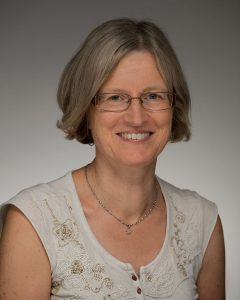
Photo credit: Saint Martin’s University. Photo credit: Matt Cashore/University of Notre Dame
In her lecture, Dr. Deane-Drummond will examine how evolution and creation are not, in fact, at odds with each other, and how we can have a better understanding of both if we consider them together. She holds two doctorates – a doctorate in plant physiology from the Reading University and a doctorate in theology from Manchester University.
Dr. Deane-Drummond’s visit is part of Saint Martin’s “Year of Reason” series, a schedule of programs during the 2016-17 academic year in which the university’s students, faculty and staff reflect on the concept of Reason.
Reason is one of the core themes found in Saint Martin’s mission. As part of its current five-year strategic plan, which leads up to the University’s 125th anniversary in 2020, the Saint Martin’s community is dedicating one whole year of reflection and dialogue for each of its four core themes: Faith, Reason, Service and Community.
“Students and staff are all very excited about our current journey,” explains Katie Bugyis, Ph.D., a professor of religious studies at Saint Martin’s. “This is the first time in our history where we have spent a year thinking about what our core themes mean. It gives us the opportunity to really think about our mission and how we make that mission visible to our school community as well as the wider community.”
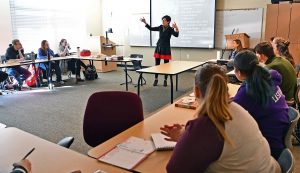
Bugyis is leading the “Year of Reason,” which follows last year’s “Year of Faith” series, and seeks to emphasize that the four core themes are not separate, but interrelated. This led to her decision to focus on the dialogue between faith and science.
Reason and Science. Religion and Faith. These subjects have long been considered opposites or even incompatible with each other. If you have a faith, you may have been taught to be suspicious of science, and those in the science community often believe religious followers have little or no reason.
“We want to show people that [faith and science] are actually handmaidens of each other and they need to go hand-in-hand,” explains Bugyis.
She continues that this idea is not new, but part of a long-standing tradition within the Roman Catholic Church, with Thomas Aquinas in the 13th century being a notable example. However, what most people remember are the conflicts, such as the debate around Galileo or the uproar over the teachings of Darwin.
“Certainly the church has been responsible for making this either/or – either you’re on the side of faith or you are on the side of science,” Bugyis adds. “However, Pope Francis has made such an important push as part of his pontificate to revitalize what’s called the Court of The Gentiles. He has charged the person overseeing it to reinvigorate the dialogue between faith and reason. To that end, he is bringing scientists to the Vatican to talk about this topic, which is so great. It’s really hopeful to see this happening, and Saint Martin’s wants to be a part of that as well. That’s why we are hosting this event.”
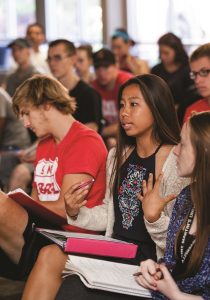
She says Dr. Deane-Drummond is considered the foremost expert in the United States on the connection between faith and science. Her education in both science and theology has opened new dialogue about how reason and faith co-exist and how evolution and creation complement each other in ways that may have never been discussed before. Dr. Deane-Drummmond started the Center for Theology, Science and Human Flourishing at Notre Dame after receiving a grant from the Templeton Foundation, which “encourages civil, informed dialogue among scientists, philosophers and theologians,” according to the foundation. Her research has attracted students and faculty from other universities to come study these important questions on the intersection of science and theology.
“Of course, evolution has always been a highly debated topic,” says Bugyis. “At the publishing of his work, Darwin received very negative backlash from Catholic and other Christian traditions. What Dr. Deane-Drummond is trying to show is that this account of human development, or species development, that we get from works like Darwin’s is quite in accord with Catholic teachings about the nature of creation and how God works in all creation.”
Bugyis shares that Deane-Drummond is especially interested in what it means to be human. Deane-Drummond will speak about new insights from evolutionary biology that are helping to answer that very question.
“A big part of this ‘Year of Reason’ series is about educating the student body population about the Catholic tradition and this fruitful dialogue between faith and reason,” explains Bugyis.
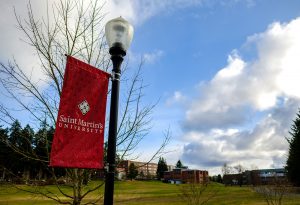
Although founded as a Catholic college in 1895 by a Benedictine order of monks, Saint Martin’s current student body population is quite diverse, with more than 20 different religions represented. In addition, about 38 percent of the undergraduate student population identify themselves as Catholic. Bugyis hopes this year’s program will help answer questions and may even change how some of non-Catholics view the Catholic religion. The first event of the “Year of Reason” was a panel discussion with faculty, staff and the student debate team entitled, “Is Religion Reasonable?”
Explains Bugyis, “It’s been amazing to see students participate in the programs and change their mind about Catholicism. Not that they are converting, but that they don’t see it as close-minded or doctrinaire. They see we are open to other religious traditions and also open to advances that have been made in science.”
For more information about Saint Martin’s University and the upcoming March 29 lecture, visit their website.
Sponsored






